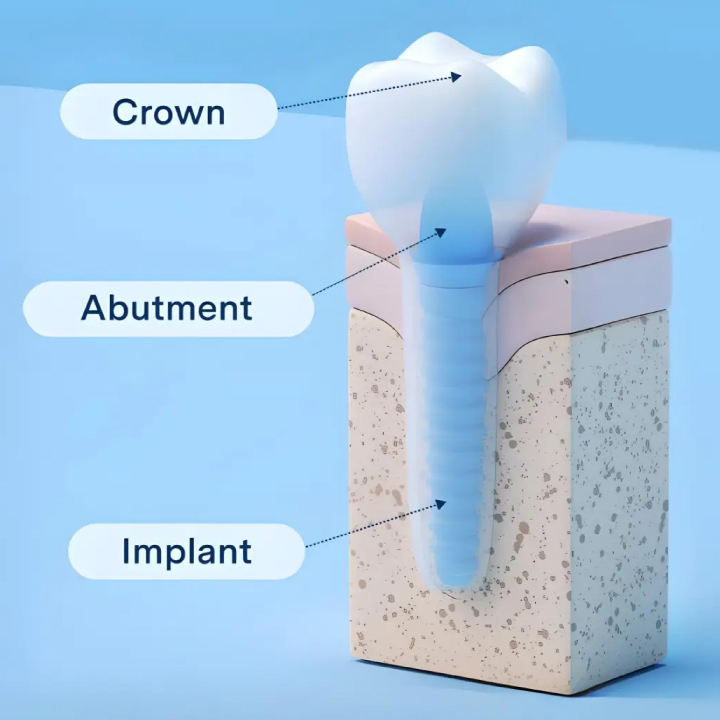
Dental Implants Designed For You
Smile for years to come with the clinically-recommended solution for missing teeth: dental implants. As fixed additions to your mouth, they naturally fit into your smile and function like your own teeth.
Highest satisfaction rate
Most like natural teeth, dental implants are the easiest smile solution to care for, which is why 85% of denture patients prefer them.
4.5x better chewing ability
The win-win solution: save money over time and stay healthy with all of the nutritious foods you love.
From one tooth to all
Whether you need to replace a single tooth, or transform your entire smile, we can help.
Explore dental implant procedures
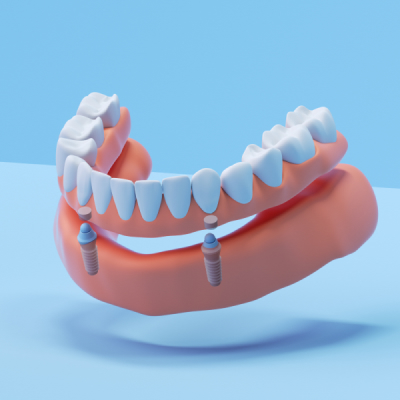
Full mouth implants
Transform your entire smile with full mouth implants.
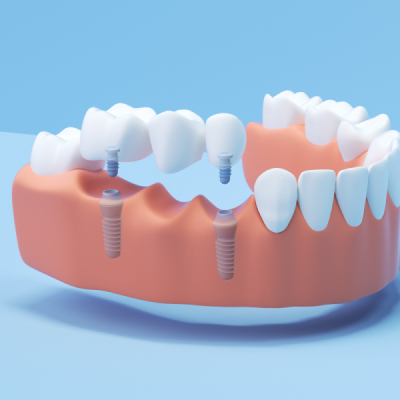
Implant-supported bridge
Secure your bridge with the solution that saves you money over time.
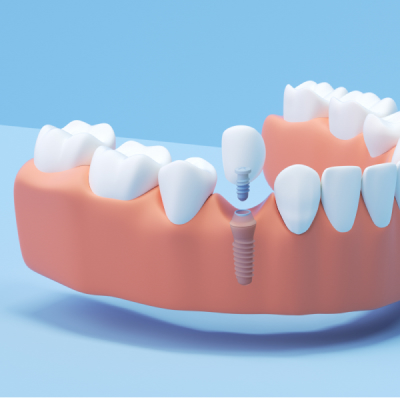
Single tooth implant
Add to your smile with a natural-looking and feeling implant.
Affording dental implants
With most insurance partners providing dental implant coverage, we make sure you get the smile you want. Wherever your insurance coverage ends, we’ll help you apply for financing that approves 4 out of 5 patients with third-party lending so you can cover the rest with one low monthly payment.
Dental Implants Frequently Asked Questions
What are dental implants?
A dental implant is a small titanium post that is surgically placed into the jawbone, providing a foundation for a replacement tooth or teeth. Placing an implant is a common surgical procedure performed by your highly trained dentist at Dental Corner.
Where can I find dental implants near me?
With convenient Kansas City location, there’s an Dental Corneroffice that’s on your corner and in your corner when it comes to exploring tooth replacement solutions. Visit your local Dental Corneroffice or schedule an appointment today to speak with one of our dental implant professionals.
How do I find affordable dental implants near me?
Dental Corneroffers some of the most comprehensive and affordable dental implants available today. Find an Dental Corneroffice near you with our Dentist Directory.
Is it painful to get a dental implant?
Most patients experience only mild discomfort during and after the implant procedure. To ensure ease during treatment, pain medication is distributed if needed. Your Dental Cornercare team is here to always keep you comfortable. Please note that pain tolerance varies from patient to patient.
How long do dental implants last?
Dental implants can last a lifetime with proper care and maintenance. Regular dental checkups and good oral hygiene habits can help ensure the longevity of your implant. Your Dental Cornerteam can provide help and guidance along the way.
Are dental implants expensive?
Dental implant costs can vary depending on the number of implants needed, the location of the implants, and if there are any additional procedures required. Here at Dental Corner & Braces, we offer a range of dental financing options to help make dental implants fit your unique budget.
How long does the dental implant process take?
The implant process can vary depending on your personal needs, but it typically takes a few months to complete, given the bone can take up to 6 months to heal. This includes your initial consultation, implant placement surgery and then the placement of the final restoration.
Are dental implant suitable for everyone?
While dental implants are a great option for many patients, they may not be suitable for everyone. Factors such as bone density, overall health and lifestyle habits can impact a patient’s candidacy for implants. Meet with a dentist near you to determine if dental implants are the right choice for you.
What are the benefits of dental implants?
Dental implants can provide a lifetime of benefits, including improved oral health, increased confidence and self-esteem, and better functionality and comfort when compared to traditional dentures or bridges.
Are there any downsides to dental implants?
Dental implants offer the best long-term value for your smile replacement needs. Completing your implant journey will take several months to ensure your bone has enough time to heal after your implants are placed. Additionally, they cost more upfront—but with proper care, you can enjoy 25+ years of wear.
Can dental implant replace multiple teeth?
Yes, dental implants can be used to replace a single tooth, multiple teeth, or even an entire arch of teeth. Your Dental Cornerdentist will work with you to determine the best care plan based on your individual needs.
What’s the success rate for dental implants?
Although individual results may vary, the reported success rate of dental implants is very high, up to 98%. Schedule your appointment at an Dental Cornernear you to learn more.
- Early Morning Appointments
- Same-Day Appointments
- Walk-ins are Welcome
- After-Hours Dentistry / Care
Ready to make your appointment?
It is Dental Corner’s goal to provide you with optimal care in a relaxed environment.
Contact us today to get started.
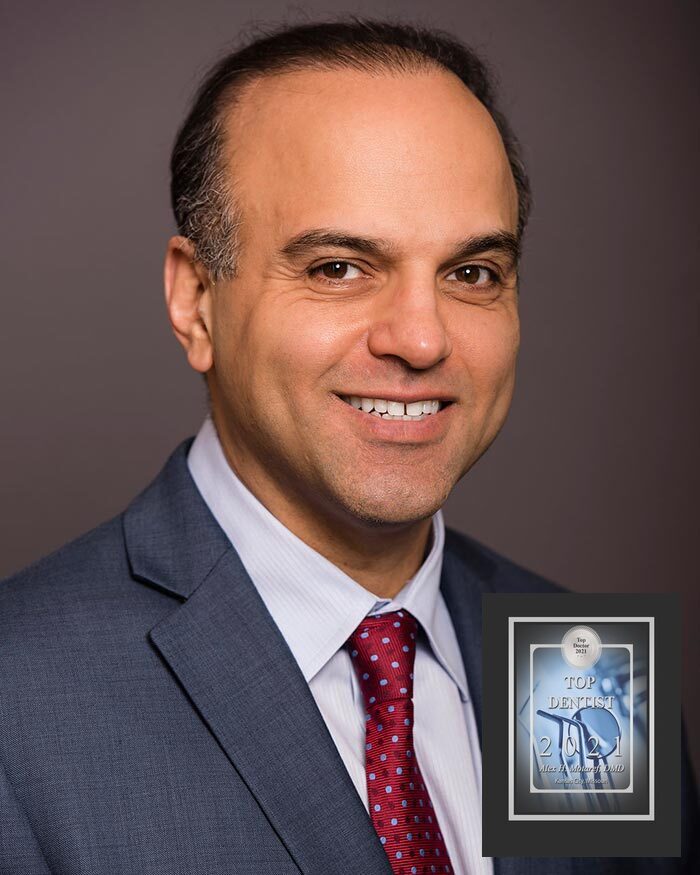
New Patients Are Welcome!
At Dental Corner we offer a range of cutting edge treatments and services designed to bring out the very best in your smile.

